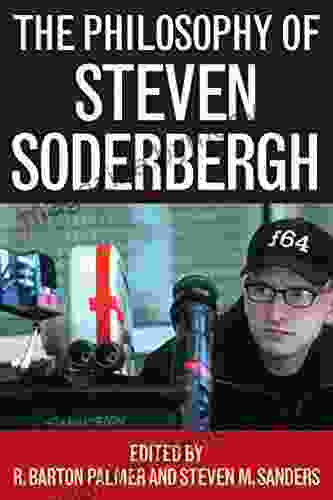Unraveling the Philosophy of Steven Soderbergh: Exploring the Depths of Popular Culture

Steven Soderbergh, an acclaimed American filmmaker, has captivated audiences with his innovative and thought-provoking cinematic creations. His films delve into the complexities of human nature, explore societal issues, and challenge conventional storytelling techniques. This article delves into the philosophical underpinnings of Soderbergh's work, examining how his films engage with the philosophy of popular culture.
Narrative Techniques and the Power of Subtext
Soderbergh's films are characterized by their unconventional narrative structures and experimental editing techniques. He employs nonlinear timelines, fragmented shots, and juxtaposing viewpoints to create a sense of disorientation and intrigue. These techniques challenge traditional notions of storytelling, forcing viewers to actively engage with the narrative and interpret its meanings.
5 out of 5
| Language | : | English |
| File size | : | 785 KB |
| Text-to-Speech | : | Enabled |
| Enhanced typesetting | : | Enabled |
| Word Wise | : | Enabled |
| Print length | : | 329 pages |
| Lending | : | Enabled |
| Screen Reader | : | Supported |
By using a fragmented and non-chronological approach, Soderbergh invites viewers to piece together the puzzle of the story themselves. They must deduce character motivations, decipher hidden connections, and draw their own s. This process of active interpretation prompts audiences to think critically about the film's themes and the underlying messages it conveys.
Social Commentary and the Mirror of Reality
Soderbergh's films often serve as a mirror to society, reflecting its complexities and contradictions. He tackles issues such as globalization, consumerism, and the pursuit of power, exposing the hidden forces that shape our lives. His films challenge viewers to confront uncomfortable truths and question the status quo.
In "Traffic" (2000),Soderbergh explores the complexities of the war on drugs and its devastating consequences on individuals and communities. Through interwoven narratives, he depicts the lives of a Mexican drug lord, a DEA agent, and an affluent suburban family, highlighting the interconnectedness of the drug trade and its far-reaching impact.
Similarly, in "Erin Brockovich" (2000),Soderbergh exposes the corporate greed and environmental pollution that have devastating effects on a small town community. He uses the story of a single mother who fights for justice as a conduit to examine themes of social responsibility and the struggle against power structures.
Auteurism and the Creative Vision
Soderbergh's films bear the unmistakable stamp of his unique artistic vision. As an auteur, he maintains a high level of creative control over his work, from writing and directing to editing and cinematography. His films are characterized by a distinct visual style, experimental techniques, and a keen eye for detail.
Soderbergh's auteurism allows him to fully express his creative ideas and convey his personal philosophy through his films. He uses his creative platform to engage with complex issues, challenge societal norms, and provoke thought in his audience. By crafting films that are both entertaining and thought-provoking, Soderbergh establishes himself as a significant figure in the philosophy of popular culture.
Experimental Cinema and the Boundaries of Form
Soderbergh is known for his willingness to experiment with cinematic form and push the boundaries of traditional filmmaking. He employs experimental techniques, such as long takes, shaky camerawork, and found footage, to create a sense of realism and immediacy. These techniques challenge conventional notions of cinematic aesthetics and invite viewers to question the nature of filmmaking itself.
In "Schizopolis" (1996),Soderbergh experiments with non-linear storytelling, multiple characters, and surreal imagery to explore themes of identity, memory, and the nature of reality. The film's unconventional structure and experimental techniques create a disorienting experience that forces viewers to confront their own perceptions and the boundaries of narrative form.
Similarly, in "Che" (2008),Soderbergh uses two different films to explore the life of legendary revolutionary Che Guevara. The first film, "The Argentine," focuses on Guevara's early life and his role in the Cuban Revolution, while the second film, "Guerrilla," follows his attempts to spread revolution throughout South America. By splitting the story into two parts and using different narrative styles, Soderbergh offers a complex and multifaceted portrait of a historical figure.
Steven Soderbergh's films are a testament to the power of popular culture to engage with complex philosophical issues. Through his innovative storytelling techniques, experimental cinema, and social commentary, Soderbergh challenges conventional notions of filmmaking and prompts viewers to critically engage with the world around them. His work exemplifies the philosophy of popular culture, demonstrating its ability to reflect society, provoke thought, and inspire change.
As an auteur with a distinct artistic vision, Soderbergh uses his creative platform to explore the human condition, question societal structures, and experiment with the boundaries of cinematic form. By embracing popular culture as a medium for philosophical exploration, Soderbergh elevates the art of filmmaking and establishes himself as a significant figure in the contemporary cinematic landscape.
5 out of 5
| Language | : | English |
| File size | : | 785 KB |
| Text-to-Speech | : | Enabled |
| Enhanced typesetting | : | Enabled |
| Word Wise | : | Enabled |
| Print length | : | 329 pages |
| Lending | : | Enabled |
| Screen Reader | : | Supported |
Do you want to contribute by writing guest posts on this blog?
Please contact us and send us a resume of previous articles that you have written.
 Book
Book Novel
Novel Page
Page Chapter
Chapter Text
Text Story
Story Genre
Genre Reader
Reader Library
Library Paperback
Paperback E-book
E-book Magazine
Magazine Newspaper
Newspaper Paragraph
Paragraph Sentence
Sentence Bookmark
Bookmark Shelf
Shelf Glossary
Glossary Bibliography
Bibliography Foreword
Foreword Preface
Preface Synopsis
Synopsis Annotation
Annotation Footnote
Footnote Manuscript
Manuscript Scroll
Scroll Codex
Codex Tome
Tome Bestseller
Bestseller Classics
Classics Library card
Library card Narrative
Narrative Biography
Biography Autobiography
Autobiography Memoir
Memoir Reference
Reference Encyclopedia
Encyclopedia Sheila Rogers Demare
Sheila Rogers Demare Roxy Marj
Roxy Marj John North
John North Wan Mohd Hirwani Wan Hussain
Wan Mohd Hirwani Wan Hussain Scott Reddinger
Scott Reddinger Suzanne Hansen
Suzanne Hansen Julia Finley Mosca
Julia Finley Mosca Kitty O Meara
Kitty O Meara Joseph Dumit
Joseph Dumit Jacob Smith
Jacob Smith Jonathan Pelson
Jonathan Pelson Traci Bautista
Traci Bautista Julia Ibbotson
Julia Ibbotson Jono Bacon
Jono Bacon Josh Lanyon
Josh Lanyon Joy Spanabel Emery
Joy Spanabel Emery Kimberly Drew
Kimberly Drew Rob Bell
Rob Bell Emily Evans
Emily Evans Julius Evola
Julius Evola
Light bulbAdvertise smarter! Our strategic ad space ensures maximum exposure. Reserve your spot today!

 Fred FosterUnveiling the Secrets: A Comprehensive Exploration of The Facility Management...
Fred FosterUnveiling the Secrets: A Comprehensive Exploration of The Facility Management...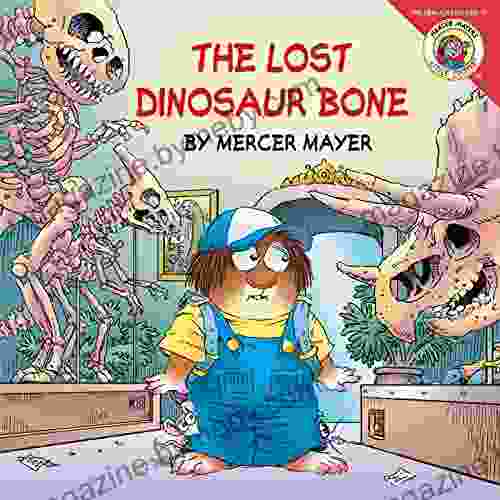
 Cooper BellUncover the Lost Dinosaur Bone: Embark on an Enchanting Adventure with Little...
Cooper BellUncover the Lost Dinosaur Bone: Embark on an Enchanting Adventure with Little...
 T.S. EliotThe Complete John Stands In Timber Interviews: Uncovering the Civilization of...
T.S. EliotThe Complete John Stands In Timber Interviews: Uncovering the Civilization of...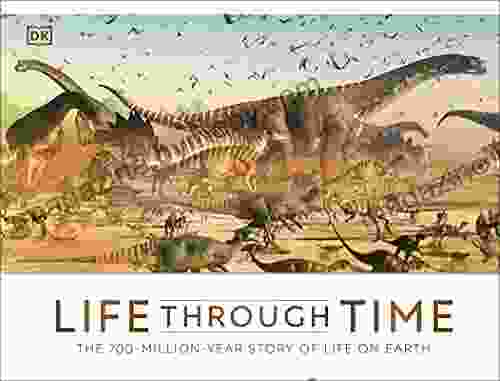
 Mitch FosterUnveiling the Majestic Tapestry of Life: A Journey Through 700 Million Years...
Mitch FosterUnveiling the Majestic Tapestry of Life: A Journey Through 700 Million Years... Jeremy CookFollow ·12.7k
Jeremy CookFollow ·12.7k Bill GrantFollow ·3k
Bill GrantFollow ·3k Zadie SmithFollow ·14.2k
Zadie SmithFollow ·14.2k Raymond ChandlerFollow ·2.1k
Raymond ChandlerFollow ·2.1k Herbert CoxFollow ·11.2k
Herbert CoxFollow ·11.2k Randy HayesFollow ·15.1k
Randy HayesFollow ·15.1k Enrique BlairFollow ·17.6k
Enrique BlairFollow ·17.6k Nikolai GogolFollow ·2.8k
Nikolai GogolFollow ·2.8k
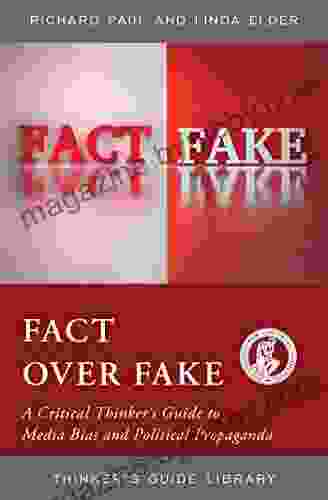
 Efrain Powell
Efrain PowellCritical Thinker's Guide to Media Bias and Political...
In a world awash with information, it has...
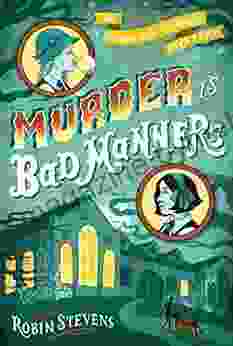
 Aubrey Blair
Aubrey BlairMurder Is Bad Manners: An Unforgettable English Mystery
Prepare yourself for a captivating literary...

 Luke Blair
Luke BlairDon't Settle For Safe: Embrace Adventure and Live a Life...
<p>In this inspiring and...

 W.H. Auden
W.H. AudenRoblox Codes Dragon Adventures King Legacy All Combat...
Roblox is a massively popular online game...
5 out of 5
| Language | : | English |
| File size | : | 785 KB |
| Text-to-Speech | : | Enabled |
| Enhanced typesetting | : | Enabled |
| Word Wise | : | Enabled |
| Print length | : | 329 pages |
| Lending | : | Enabled |
| Screen Reader | : | Supported |


